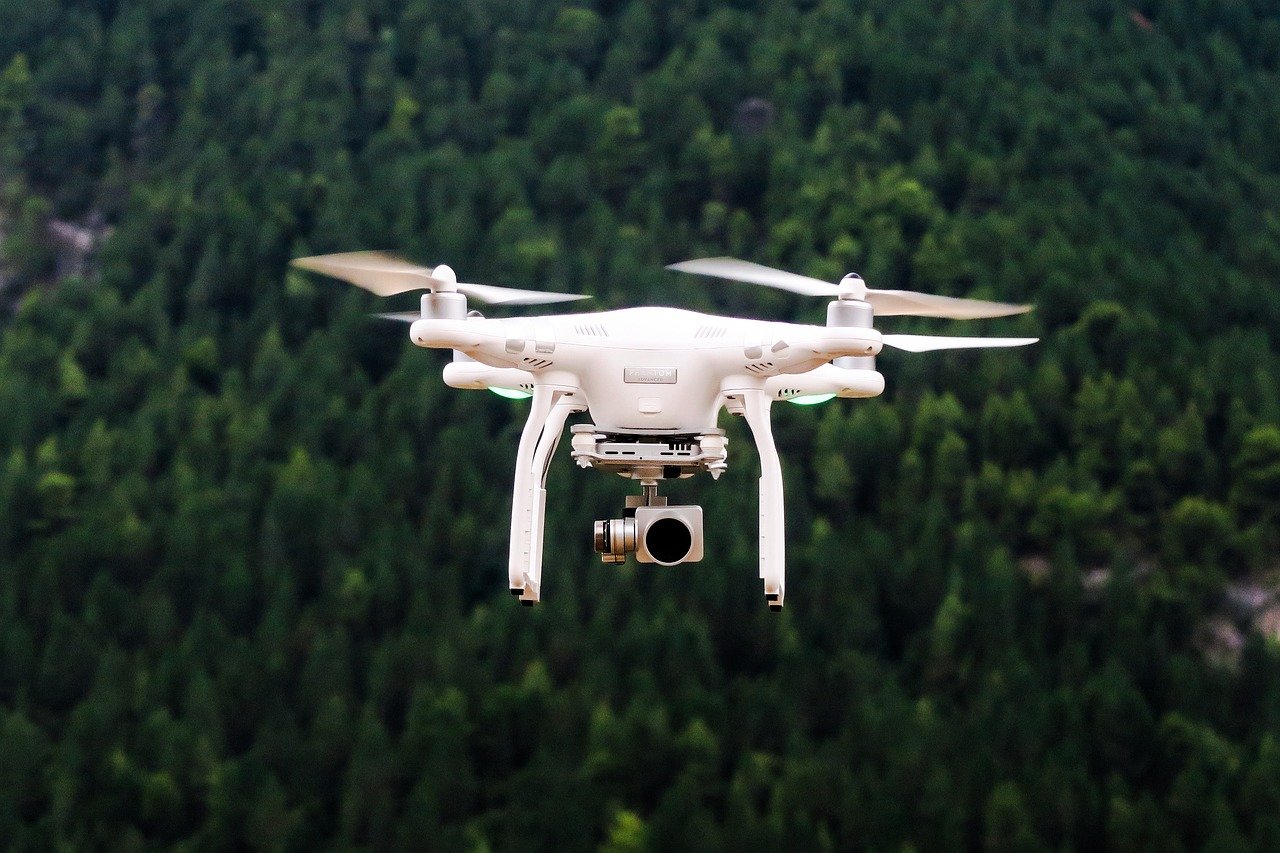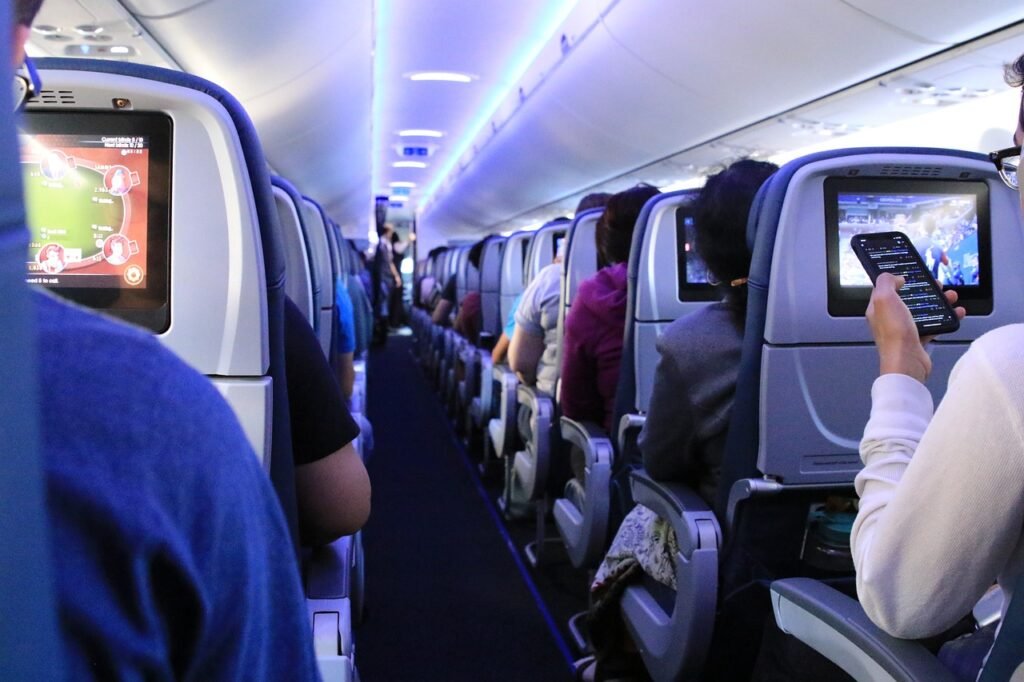The future of transportation technology in Africa is food for thought with the rapid urbanization happening globally. Population growth, increasing pressure for sustainable and efficient solutions, and Africa’s transportation system is on the verge of a major transition due to urbanization.
As a result, traditional infrastructure cannot meet these changes, causing problems such as traffic congestion, pollution and shortage of access to basic services. But new technology is coming to the rescue.
Everything from EVs to data-centric logistics and drone deliveries — the use of digital transportation is being redefined across the continents. In this article, we explore the innovations leading the evolution of transportation in Africa, the challenges that hinder progress and solutions driving us towards a connected and sustainable future.

Image source: pixabay
Innovations in Transport
One of the most significant movements is rigorous electric mobility. Electric vehicles (EVs): a mixture of electric vehicles, electric buses and even some two-wheelers such as e-scooters are being introduced to help save our cities from fossil fuel-based energy and cut pollution.
Fortifying the entry for EVs in cities like Nairobi and Johannesburg where governments and startups are rolling out charging infrastructure as well as pilot programs to sustain scale-up.
Through the promise of lower operating costs and emissions, EVs can be a more flexible tool for sustainable urban transportation than conventional vehicles could provide.
#1. Ride-hailing and mobility
Ride-hailing and Mobility as a Service (MaaS) solutions are also changing the face of transportation in African cities. Uber and Bolt exist but also local startups and all is cheaper than owning a car.
A number of such services incorporate electronic payment software, facilitating transport for those more specified areas with access to mobile money. MaaS options aggregate multiple means of transport (buses, bike-sharing, taxi), develop them collectively on a single platform accessible from a smartphone so users can plan their trips and select the best route based on efficiency and pricing.
This method not only alleviates urban traffic congestion but also minimizes environmental impact by fewer vehicles on the road.
Recent advancements in data-driven logistics have benefitted Africa’s supply chains dramatically. Real-time tracking of shipments, route optimization and delivery time estimation using real-time data can enable a company to conduct deployments effectively.
This is paramount for agriculture, retail and manufacturing industries where stable transport is critical to economic growth. Data insights help businesses address the bottlenecks caused due to limited infrastructure and irregularities in traffic conditions; therefore, optimizing operations and expenses.
 Image source: pixabay
Image source: pixabay
#2. Drone technology
Drone technology has become a viable option for delivering health solutions where road networks are poorly developed or non-existent. Drones are even being deployed in healthcare, where medical supplies can be flown to rural clinics, which decreases delivery times and helps improve access to critical care.
This offers potential for much wider applications, with food and retail deliveries set to revolutionize last-mile logistics across the continent as regulatory frameworks around drone usage become cemented.
Read also: How to Leverage User Feedback for Product Development
The Future Of Transportation Technology in Africa: Challenges and Solutions
Challenges
While there are new and exciting developments taking place, the road to a digital transport future for Africa is not all smooth sailing. One of the main barriers is infrastructure constraints Most of the roads, especially those within rural areas, continue to be either unpaved or in low-quality condition and so there will never always be productive conventional and sophisticated carry alternatives.
This absence at a basic infrastructure level also reduces access to electric charging stations necessary for EV adoption. To tackle all these issues, nations and global bodies are concentrating on the work by investing in street networks while creating charging frameworks to strengthen EVs inside core parts of urban areas.
Regulatory barriers constitute another area in which it again becomes difficult to clear less functional boundaries. Emerging transit technologies like ride-sharing apps, drones(says the person looking at this page while the mask fades), and EVs all operate in some sort of regulatory limbo, leaving companies as well as consumers more than a little uncertain about the rollout of new mobility options.
Solutions
Nevertheless, a few governments are taking the first steps in building frameworks that balance innovation and the protection of public goods. Progressive drone policies, as seen in Rwanda and Kenya, have also led to regulated and safe operations.
These open the door to full-scale deployment of drone technology and serve as a model for other countries on the continent.
With many solutions relying on smartphone apps and mobile connectivity, digital literacy and access to reliable and affordable edges are also key issues. Especially in rural areas, their internet is often unavailable or at least slow; nor are some people used to or able to navigate the digital space.
These initiatives could include increasing digital literacy and access to mobile networks. We potentially see the role that public-private partnerships might have to play in ameliorating internet access and affordability so that larger swathes of the population can take advantage of digital transport solutions.
As digitalization in the transportation sector increases, so does the significance of cybersecurity. Considering the increase in mobile payment systems and online platforms, protecting user data from cyber-attacks is imperative.
To protect them and build trust, transportation companies are investing in cybersecurity measures including encryption and secure authentication. Finding solutions to mitigate cybersecurity risks and keeping digital transportation safe will be critical for the sustained success of these systems across the continent.
Read also: The Role of Artificial Intelligence in Marketing
Wrap-Up: The Future Of Transportation Technology in Africa
At the heart of Africa’s transportation change is a digital-led process that provides an opportunity to enhance efficiency, sustainability and accessibility. The opportunity for addressing these problems is, in fact, electrification (electric mobility), ride-sharing, data-driven logistics and drones for both cities and rural communities.
But making this vision a reality will mean navigating a series of challenges — in infrastructure, regulation and digital literacy. There are a variety of challenges, but infrastructure, regulations mirroring the updated technologies and digital education will always be needed–so it is up to governments alongside private enterprises and local communities.
About more than tech: The future of transport in Africa is about promoting economic growth, reducing environmental impact, and making society more close-knit. With the right investments and partnerships, Africa can certainly develop the transport network to support its growing population while also preparing for a sustainable, innovative future.
Digital transportation is an enabler and with digital transport gaining enough traction, Africa — cities & towns will soon witness a mobility revolution, one that acts as a catalyst for quality life and progress. It is a journey that truly goes beyond moving people and goods, laying the groundwork for an equitable new deal for future generations of Africans.


